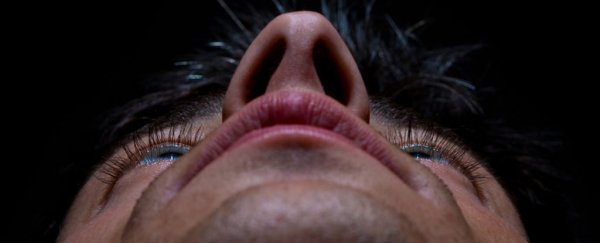Scientists have found what they think could be a crucial weapon in the fight against superbugs, and it was lurking in the bacterial gunk in the human nose this whole time.
The discovery came about through the swabbing and analysis of nasal bacteria in 90 study participants, which revealed a strain of bacterium called Staphylococcus lugdunensis.
The researchers have since developed a drug based on the strain, called Lugdunin, and it's part of a completely new class of antibiotics.
The researchers behind Lugdunin, from the University of Tübingen in Germany, were then able to use the drug to combat MRSA – a well-known superbug – in mice. That suggests we could have a powerful new treatment on our hands, even if it will be some years before a compound is developed for human use.
"Normally antibiotics are formed only by soil bacteria and fungi," explained one of the researchers, microbiologist Andreas Peschel. "The notion that human microflora may also be a source of antimicrobial agents is a new discovery."
The scientists also discovered that the MRSA strain and Staphylococcus lugdunensis were rarely found together in the human nose, supporting the idea that the latter can help in fighting off the former.
What makes the findings all the more exciting is our growing problem with antibiotic resistance – germs are constantly evolving to resist our best defences against them, and we haven't found a new class of antibiotics like this since the 1980s.
And there could be more discoveries on the way, the scientists think. "Lugdunin is just the first example," Peschel told Alessandra Potenza at The Verge. "Maybe it's just the tip of the iceberg."
In other words, it's possible that there are plenty more bugs, currently resistant to classic antibiotics, that could be fought with Lugdunin and anything else we can find hiding up our noses. It will be several years before we get to that point though.
You can also add these findings, now published in the journal Nature, to the list of serendipitous scientific discoveries researchers make sometimes, because the research team wasn't looking for a new bacterium strain at the beginning of their project.
While experts are warning that MRSA will eventually become resistant to Lugdunin – they've already been fighting in the human body for a long, long time – it's an important chink of light in the challenge of staying one step ahead of the superbugs.
It's estimated that smarter, more stubborn bugs could account for hundreds of millions of deaths by 2050, and the race is on to discover new antibiotics to combat them.
The newly discovered bacteria could be crucial in fighting that cause, which is something to think about the next time you stick your finger up your nose.
